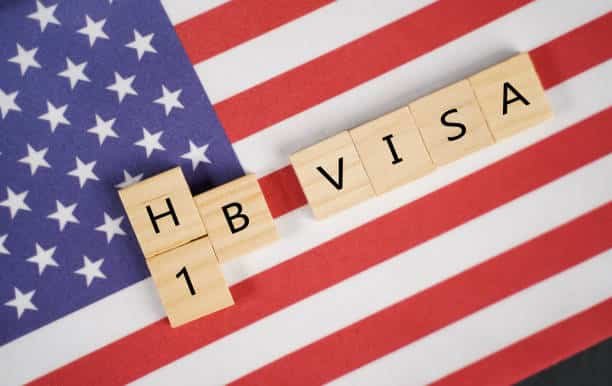Cost of Relocating to Canada from Nigeria 2023/24 – A Comprehensive Cost Breakdown

Are you planning to embark on a new chapter in Canada? Understand the cost of relocating to Canada from Nigeria. This guide provides a detailed breakdown of immigration fees, settlement funds, and other associated expenses to ensure a smooth transition.

Embarking on the journey to relocate from Nigeria to Canada is an exciting prospect filled with opportunities and new beginnings. However, the process involves various costs that individuals and families must consider meticulously to ensure a smooth transition. From visa applications to settlement funds, educational pursuits, and health insurance, understanding the financial aspects of this relocation is paramount. In this article, we’ll explore the key elements associated with the cost of relocating to Canada from Nigeria, providing valuable insights for those planning to make this transformative move.
SEE ALSO: 6 Career Opportunities in Sports Management Jobs in Canada
How Much Money Do I Need To Cover Living Expenses in Canada
Determining the financial requirements for living expenses in Canada is contingent on the size of your family, and these figures are regularly updated on the Canadian immigration website. Canada.ca suggests bringing sufficient funds for a comfortable settlement. The primary consideration isn’t just about the money needed for immigration but understanding how to relocate successfully without facing deportation. Addressing questions such as how to demonstrate proof of funds for Canadian immigration is crucial, and we’ll delve into these inquiries. Specifically, the focus here is on the amount needed for immigration to Canada. Before calculating the cost of moving, it’s essential to explore the most viable routes, with Express Entry being the prevalent choice in Nigeria, especially for individuals under 35. Additionally, the Provincial Nominee Program is a prominent alternative, along with the Rural and Northern Canada Immigration Pilot & Home-Care Provider Program, catering to those not privileged under EEP or PNP. Later on, we’ll delve deeper into these options for better clarity.
Amount You Need To Immigrate To Canada from Nigeria
When contemplating the amount needed to immigrate to Canada from Nigeria, the key factor is your family size. The required funds for a family of four are $23,181 in Canadian dollars. Interestingly, you might be wondering if you need to concern yourself with the specific amount for relocation. The answer is affirmative. The Immigrants Express Entry Proof of Funds is a crucial requirement for Canadian immigration, compelling applicants to demonstrate they possess sufficient funds to support themselves and their family upon arrival. However, exemptions exist for those who fulfill certain criteria, including having a valid offer of arranged employment, current work authorization in Canada, intending to relocate under the Home-Care Provider Program, or participating in the Rural and Northern Canada Immigration Pilot Program. Additionally, it’s important to consider the various processing fees associated with Immigration, Refugees, and Citizenship, such as the ₦45,000.00 fee for the Canada Business Visa. Applicants should also factor in an extra ₦5,000 for potential exchange rate differentials when partnering with VFS Nigeria for application submission through the Canadian Embassy.
Cost of applying for immigration to Canada through Express Entry
In essence, the cost of applying for immigration to Canada through Express Entry and the Provincial Nominee Program (PNP) is estimated as follows:
- Individual Applicant: Approximately $15,500
- Couples: Around $21,000
- Families with One Child: Between $25,000 to $30,000
- Language tests (IELTS, CELPIP, TEF, or TCF): Average cost – $300 (Individual), $600 (Couple), $600 (Couple + 1 Child), $600 (Couple + 2 Children)
- Educational Credential Evaluation (ECA): Cost excluding international courier delivery charges – $200 (Individual), $400 (Couple), $400 (Couple + 1 Child), $400 (Couple + 2 Children)
- Biometrics: Charges for 2 or more people remain the same provided all members are applying at the same time and place – $85 (Individual), $170 (Couple), $170 (Couple + 1 Child), $170 (Couple + 2 Children)
- Medical exams: Average cost; fee varies by country – $100 (Individual), $200 (Couple), $300 (Couple + 1 Child), $400 (Couple + 2 Children)
- Application processing fee: $850 (Individual), $1,700 (Couple), $1,930 (Couple + 1 Child), $2,160 (Couple + 2 Children)
- Right of permanent residence fee: $515 (Individual), $1,030 (Couple), $1,030 (Couple + 1 Child), $1,030 (Couple + 2 Children)
- Miscellaneous fees (police certificate, transcripts, courier delivery, photos, notaries, translations, etc.): Average (assumed) cost – $250 (Individual), $500 (Couple), $600 (Couple + 1 Child), $700 (Couple + 2 Children)
- Settlement funds: Not applicable for Canadian Experience Class (CEC) – $13,757 (Individual), $17,127 (Couple), $21,055 (Couple + 1 Child), $25,564 (Couple + 2 Children).

Cost of applying for a Canadian study permit for international students
Determining the cost of applying for a Canadian study permit for international students involves a few factors. Unlike the Express Entry or PNP processes, it’s slightly complex due to varying application fees set by universities and colleges. To provide a comprehensive overview of the potential costs, here’s a breakdown:
University/College Application Fees:
- Ranges between $100 to $500
Note: This fee is non-refundable, irrespective of acceptance. Some colleges may not charge an application fee.
Study Permit Application Fee:
- $150
Biometrics Fee:
- Individual: $85
- 2 or more people applying at the same time and place: $170
- Language Testing (if required):
- Average cost: $300
Medical Exams (if required):
- Fee varies by country.
- Average cost: $100
Miscellaneous Expenses (police certificate, transcripts, courier delivery, photos, notaries, translations, etc.):
– Average (assumed) cost: $250
Tuition Fees:
- Varies by programs/courses and the college or university you enroll in.
- Undergraduate program: $33,623
- Post-graduate program: $21,120
- MBA program: $86,000
Health Insurance:
- $600 to $1,000
Funds to Support Your Stay and/or a Guaranteed Investment Certificate (GIC):
- All provinces except Quebec: $10,000 per year.
- In Quebec: $11,000 per year
Applicants should be aware that these costs are subject to change, and verifying the latest figures and requirements on the Government of Canada website is recommended.
Cost for Applying for the International Experience Canada (IEC) – Working Holiday Visa for Canada
Applying for the International Experience Canada (IEC) – Working Holiday Visa for Canada involves various fees. The IEC program enables eligible individuals from over 30 countries to apply for a Working Holiday Visa, allowing them to live and work in Canada for 12 or 24 months, depending on their country of citizenship. Key fees for the working holiday visa include:
IEC Participation Fee:
- $156
Open Work Permit Holder Fee:
- $100
Biometrics Fee:
- $85
Medical Exam (if required):
- The fee varies by country. Average cost: $100
Minimum Funds to Support Your Stay:
- $2,500
Health Insurance:
- Starts from approximately $400 annually, varying by coverage amount and deductible.
Having sufficient finances is crucial for a successful application and a comfortable stay in Canada. It’s advisable to familiarize yourself with the financial limits set by the Canadian government, enabling you to plan your move confidently. Detailed information about the program is available on the Government of Canada website.
The Proof of Funds Requirements for Canada Relocation
The Proof of Funds requirements for Canada relocation have been recently updated, underscoring the necessity of disclosing a sufficient amount of money in your bank account as mandated by Canadian authorities. This proof is crucial to demonstrate to Canadian authorities that you possess the financial means to settle in Canada when applying for immigration.
The individuals requiring Proof of Funds are ap

plicants under the Federal Skilled Worker Program and the Federal Skilled Trades Program. However, there are exceptions, and individuals do not need to show proof of funds if they fall into the following categories:
- Applicants under the Canadian Experience Class.
- Individuals authorized to work in Canada with a valid job offer, even if applying under the Federal Skilled Worker Program or the Federal Skilled Trades Program.
- Those utilizing the Home Care Pilot Route.
- Participants in the Rural and Northern Canada Immigration Pilot Program.
Understanding these requirements is essential for a successful immigration application to Canada.
How do you provide Evidence of Proof of Funds?
Providing evidence of Proof of Funds is a crucial step in your immigration process to Canada. To do this, you can visit your bank and request your bank account statement. Alternatively, you can obtain a letter from your bank confirming the availability of the required funds. This documentation is essential and must be submitted to the Canadian authorities to support your immigration application.
Here is a breakdown of the Funds Required in both Canadian dollars and Naira, providing you with a clear understanding of the financial requirements based on the number of family members:
| Number of Family Members | Funds Required (in Canadian dollars) | Funds Required (in Naira) |
| 1 | $12,474 | ₦3,401,456.97 |
| 2 | $15,530 | ₦4,234,778.48 |
| 3 | $19,092 | ₦5,206,077.96 |
| 4 | $23,181 | ₦6,321,081.78 |
| 5 | $26,291 | ₦7,169,128.21 |
| 6 | $29,652 | ₦8,085,618.26 |
| 7 | $33,013 | ₦9,002,108.31 |
| Each additional family member | $3,361 | ₦916,490.05 |
Ensuring you meet these financial requirements is essential for a smooth immigration process and successful relocation to Canada.

What The Canadian Authority Accepts As Proof Of Funds
The Canadian Authority accepts the following as Proof of Funds for immigration:
- Readily Available Funds: The funds must be easily accessible. Equity on real property cannot be used as proof of settlement funds.
- Non-Borrowed Funds: You cannot borrow this money from another person. It must be your funds, and you must be capable of using this money to cover the living costs for your family, even if they are not accompanying you.
- Joint Accounts with Spouse: If your spouse immigrates with you and you have a joint account, the money in that account can be considered proof of funds.
- Spouse’s Account: In some cases, funds in an account solely under your spouse’s name may be accepted, but you must demonstrate that you can access these funds. The funds must be available at the time of application and when the Canadian Authority issues you a permanent resident visa.
- Proof of Access: You must prove that you can legally access the money when you land in Canada. This involves obtaining official letters from the banks or financial institutions where the funds are kept.
The Requirement For Financial Institution’s’ Proof Of Funds
When obtaining a statement of account or a letter from your bank as proof of funds, make sure the document adheres to the following requirements:
The letter must:
- Be printed on the financial institution’s letterhead.
- Include the financial institution’s contact information: This should encompass the financial institution’s address, telephone number, and email address.
- Include your name.
- List outstanding debts: Such as credit card debts and loans.
- For each current bank and investment account, the letter should provide:
– Account numbers
– Date each account was opened
– Current balance of each account
– The average balance for the past 6 months.
Ensuring that your proof of funds letter meets these requirements is crucial for a successful visa application process. It establishes the authenticity and reliability of your financial information to Canadian authorities.
How Much Money Is Needed For Submitting Your Canada Permanent Residence Visa Application?
For those applying for a Canada Permanent Residence Visa with a spouse, here’s a breakdown of the fees you’ll be required to pay:
– The Canadian Permanent Residence Visa fee for primary applicants is $500 (₦137,400.26).
– The Right of Canadian Permanent Residence fee is $490 (₦134,652.26).
For a spouse/common-law partner or family member:
– The fee is $550.
– The Right of Canadian Permanent Residence fee is $490.
For a child under 22 years old:
– The fee is $150.
For Canada Visa Application Processing, the service charges are as follows:
Service Charges for Application Handling:
– Amount in C$: $73.92
– Amount in Naira: 20,320 (including VAT)
Service Charges per Applicant Passport:
– Self Service computer terminal for form filling (Optional Service):
– Amount in C$: $8.36
– Amount in Naira: 2,290 (including VAT)
– Assistance with filling in forms on self-service computer terminals (Optional Service):
– Amount in C$: $23.88
– Amount in Naira: 6,560 (including VAT)
– Photocopy Services — Price per Page (Optional Service):
– Amount in C$: $0.23
– Amount in Naira: 60
– Photography Services (Optional Service):
– Amount in C$: $11.20
– Amount in Naira: 3,080
– Return Courier Delivery (Optional Service):
– Amount in C$: $36.82
– Amount in Naira: 10,120
– SMS Notification (Optional Service):
– Amount in C$: $2.50
– Amount in Naira: 680
– Secure transmission of passport to the Embassy of Canada in Lagos, upon request by visa office in Lagos (for example, electronic application):
– Amount in C$: $50.40
– Amount in Naira: 13,860
– Secure transmission of passport to the Embassy of Canada in Accra, upon request by visa:
– Amount in C$: $64.72
– Amount in Naira: 17,790
– GC Fee Service Charge:
– Amount in C$: $4.63
– Amount in Naira: 1,270
Note: These are optional services available at the Canada Visa Application Centre, and applicants can choose to avail of them.
How Much Money Is Needed To Settle Comfortably In Canada?
The amount of money you should bring to Canada depends on various factors, including the province you plan to settle in. Researching the cost of living in your chosen province is crucial; for example, living costs in Toronto differ from those in Quebec.
While there’s no ideal amount, a realistic approach is to bring as much money as possible. This eases the process of moving and finding a home in Canada. Upon arrival, inform the border officer if you carry over $10,000. Failure to disclose may result in fines and seizure of funds. This includes cash, documents for payable property or capital (stocks, bonds, etc.), and documents guaranteeing payment (banker’s drafts, money orders, travelers’ cheques).
Conclusion on Cost of Relocating to Canada from Nigeria
Relocating to Canada involves careful financial planning and adherence to specific requirements. Whether you’re immigrating through Express Entry, the Provincial Nominee Program, or other routes, understanding the costs of the application, proof of funds, and settlement is crucial. The Canadian government’s emphasis on financial stability ensures that newcomers can comfortably support themselves and their families upon arrival. As you embark on this journey, staying informed about the latest updates and requirements will contribute to a smoother transition and a successful start in your new Canadian life.
SEE ALSO: Top 6 Telecommunications Jobs in Canada – Explore Lucrative Career Opportunities




